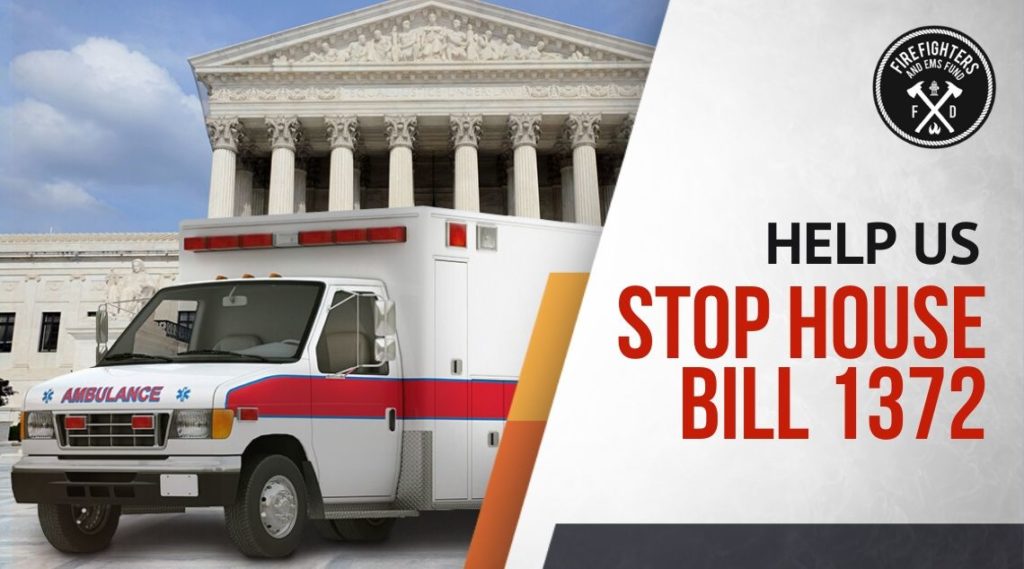Emergency Medical Services (EMS) provide specialized medical care and life-saving transportation to tens of millions of US residents annually. Outside of hospital- and government-run 911 ambulances, every society operates around the assumption that EMS professionals are a quick phone call away when non-hospital rides are needed. But for residents of Indiana, that security might change dramatically.
Last month, legislation was introduced that would drastically change EMS in the state of Indiana for the worse. House Bill 1372, introduced by Senator’s Terri Jo Austen and Matt Leham, looks to prevent private ambulance services’ ability to bill beyond a plan’s in-network rate, meaning that EMS could not bill patients for any services beyond their medical insurance rate. In theory, the Bill sounds appealing to many; no one wants to deal with surprise (and incredibly expensive) bills, especially after a medical emergency. While the proposed language solves this issue, it doesn’t address the cause of the problem.

What we should be asking, is why so many ambulance services are forced to operate out-of-network. According to a Facebook post by the Indiana EMS Association (IEMSA), in-network rates that are offered to ambulance providers by insurance companies are based on Medicare rates, and are below the actual cost to provide services to the public. Anthem, the largest insurance provider in Indiana, has an in-network rate of $251.00 for ambulance services, but the average cost of an ambulance ride is $2,006.46. The current laguance in HB 1372 requires an out-of-network provider to accept an in-network rate, and prohibits ambulance providers from billing patients for the remainder of the balance. The proposed Bill would leave ambulance services with massive amounts of uncovered costs, and threatens the entire industry across the state.
Indiana EMS agencies operate to break even in order to provide a service to the public. From 2017 to 2019, private EMS charges to patients have only changed by 4%, while insurance companies have reduced payments by 73%. With Indiana Medicaid paying EMS providers less than what was paid in 1976, there’s no profit margin to sacrifice. Many elements of EMS costs (equipment, vehicle specifications, staffing, response times, level of service, protocols, medications, annual education, etc.) are regulated on the state and local level, and are difficult to adjust. For an EMS call that turns into a 911 emergency, providers are obligated to transport regardless of ability to pay; resulting in many transports with zero payment. An inability to bill neither patients nor insurance agencies will produce dire circumstances for ambulance services.
According to the IEMSA, the Bill would force all services to be in-network, with no negotiation on adequate reimbursement rates to cover the cost of providing services. This essentially sets rates for an EMS provider without the knowledge or agreement on what that rate might be. With an estimate of 5,000 EMS affected by the proposed language unemployment rates would increase due to mass layoffs. And with less EMS workers available, citizens can expect longer response times to calls, lower levels of service, and hospitals going on bypass. Indiana residents can also expect higher taxes in order to provide 911 EMS, or changes to tax funding structures.
Thankfully, the Indiana EMS Association has already set forth a proposed solution. No one wants patients to end up with surprise bills, and while the terms of the Bill aren’t agreeable for all parties involved, the association acknowledges it’s an issue that must be solved. The IEMSA proposes to only bill patients the amount that insurance agencies say is applied to the copay, coinsurance, or deductible. It also calls to open negotiations between insurance agencies and providers on any balance that is above the allowed amount. The main goal is clear: to allow providers to receive reimbursement that adequately covers the cost of providing the service, while ensuring that patients are held harmless in the process. By removing patients from the conversation and turning fully to insurance agencies and providers to settle costs, the IEMSA hopes to allow EMS to continue providing light-saving services to the public in a timely manner.
The IESM lobbied against the Bill on February 12, with the Firefighter and EMS Fund planning on joining the battle at the capitol soon. While discussions are still on-going, there’s a lot you can do to help. Sign the change.org petition started on the Bill, and share to social media to encourage others to do the same. You can also contact your Senator, no matter what state you live in, and encourage them to vote against the Bill. And as always, reach out to us to find out about more ways to help.









